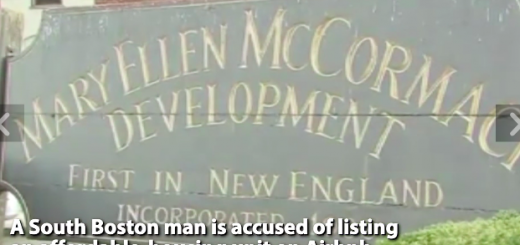Regulate short-term rentals – Now or never?
Do short-term rental sites like Airbnb affect housing affordability in Australia? The answer is clearly yes, though the magnitude of the impact may be in doubt.
The causal link is obvious but complex. Rents are rising for a number of reasons, including the global asset bubble. But it’s silly, if not disingenuous, to claim they have no effect.
This is a good summary of the anecdotal evidence for the effect of short-term rentals on the cost of renting in Australia. There’s stronger evidence, and emerging academic studies, showing a similar link in New York, Amsterdam and London.
The logic is simple: Owners make more money from short-term rentals than long-term rentals, so they’re willing to pay more for them, and these properties simply won’t be on the long-term rental market. So long-term tenants move elsewhere and only tourists are left.
The article makes the point that holiday letting is nothing new. But what has changed and has taken a lot of councils and stratas off guard is the rapid acceleration in the number of short-term rentals and the frequency with which they’re let. Full-time “professional” hosts were once too few to worry about. Their activity was simply dwarfed by the hotels, motels, hostels, etc. But Airbnb changed all that. It made staying in someone else’s home normal. And it did it phenomenally well and phenomenally quickly.
It is one of many factors causing housing affordability to worsen, but it’s definitely having an impact in areas where tourists want to live. So while it’s not wrong to claim that short-term rentals have little effect beyond certain areas, as Tenants’ Union of NSW did last year, it’s missing the point.
The link between short-term rentals and housing affordability is clear even if the magnitude isn’t. The question is really what measures a building or council needs to consider now to stay ahead of the problem.
The rise of short-term rental management companies like HomeTime and AirSorted are going to make the problem much much worse. This makes it more profitable and easier to use a property for short-term rental rather than long-term, so it’s becomes a no brainer in any area popular with tourists. It’s the fuel for the next surge in short-term rentals in these areas and a potential fatal blow for local communities.
As an Airbnb traveller myself I know what will happen next. As tourist numbers grow and grow and short-term rentals do the same to keep up with demand, the areas near the tourist zones will start being eaten up by holiday letting too. It’s already happening in Sydney and Melbourne. Bondi, Manly and the CBD are all popular areas, but increasingly so are places like Ultimo, Glebe, and Wollhara. When I travel that’s what I do now, because it’s cheaper and only a little less convenient.
Airbnb positions itself as mainly for home owners to rent out spare rooms. It report figures like the “typical” hosts earns $100 a week. But that is misleading. Airbnb is protective of its data but as an Airbnb traveller myself (and someone who watches all these sites closely), it’s clear there are many hosts with low numbers of booking, and a few “professional” hosts with lots of bookings. So yeah, the typical host doesn’t earn much, but the typical professional host does. They may have a handful of properties rented for half the year each, but this is likely more than they’ll get from a long-term rental already (based on my analysis of long-term vs short-term rental prices in different areas of Sydney. Factor in the cash-ins around Christmas and the fact that the short-term rental management companies make it so easy, and it’s obvious what’s going to happen next. That’s why it’s so important to follow Hobart’s lead and block investment property short-term rentals.
The bulk of the bookings and revenue generated on these sites seems to be through professional hosts and it’s these professional hosts that are the problem. No one cares too much if I rent out my holiday home for a few weeks a year, or a spare room in a house I live in (though very hard to tactically regulate to allow these and not others). But if people are allowed to buy up as many properties as they can and put them permanently up for short-term rentals, with fewer safety restrictions than hotels and income sources that are harder to track and tax, then this will be a disaster for communities across Australia. They simply aren’t built for it – economically, environmentally, or culturally.
So short-term renting is going to grow and the growth will accelerate. If we don’t acknowledge that it will increasingly be a problem for communities in the future, then councils won’t be able to regulate it well because they’ll either resort to backlash-fuelled crackdowns or the character of the community and ratepayers may already have permanently changed to focus on tourism. Don’t believe it? Look at Phuket or Bali or Venice. Because everything moves faster today too we’ll have even less time to slow or stop the damage when it becomes clear what’s happening. And it many communities in Australia it’s already clear.
That’s why it’s important that councils acknowledge the problem and takes steps now to regulate it. This is not about outright bans. This is about smart regulation that raises revenues for councils and gives residents the means to control the character of their communities.
If you’d like to discuss this topic with us further, please get in touch.
BnbGuard helps councils and stratas control short-term letting. Contact us to find out more.




